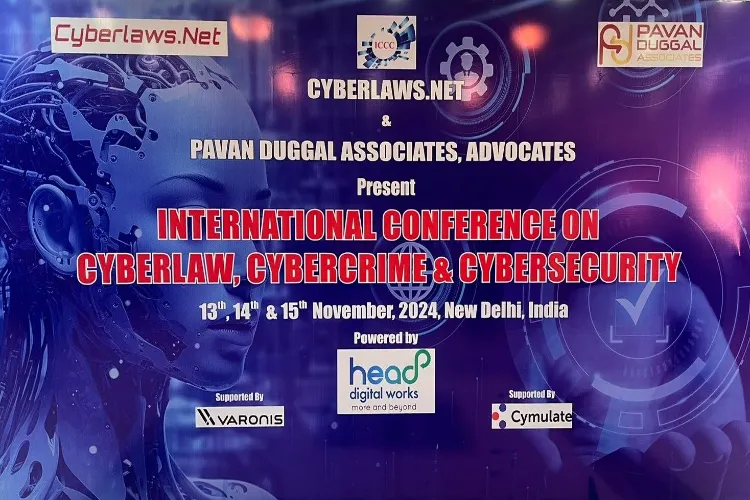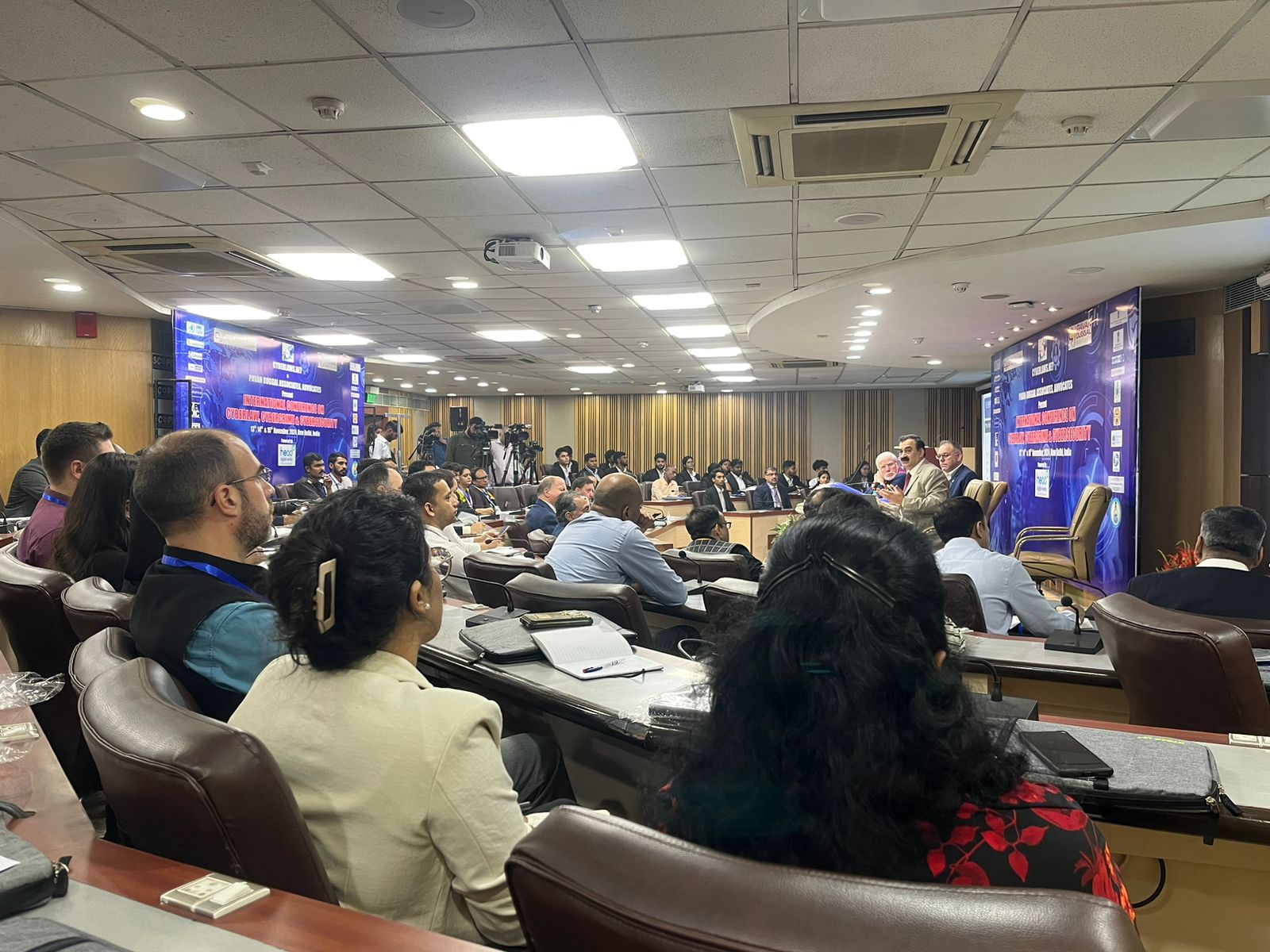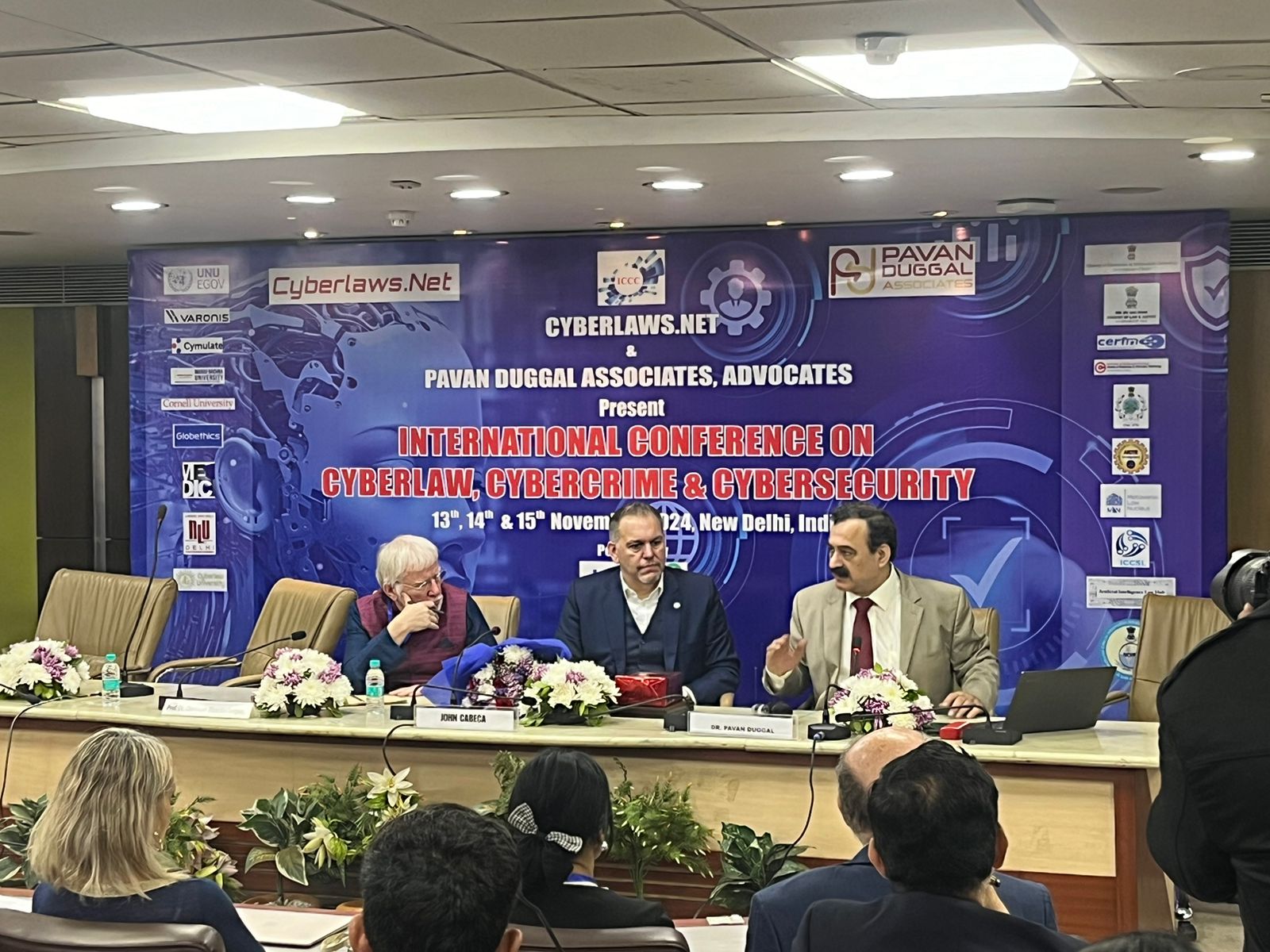
Vidushi Gaur/New Delhi
Some 200 Cyber experts from all around the world and policymakers got together in Delhi at International Conference on Cyberlaw, Cybercrime, and Cybersecurityto debate the need for evolving a global legal regime for the security of digital data and operations like the privacy of individuals, use of artificial intelligence, etc. Thos who attended the conference included lawyers, policymakers, and global experts, and government officials.
The theme for this year, "Navigating the Artificial Intelligence Landscape: Security and Legal Challenges," underscores the growing challenges posed by AI technology to global cyberlaw and cybersecurity frameworks. The two-day event, hosted at the Scope Complex on Lodhi Road, New Delhi will feature over 250 speakers worldwide, including leading industry figures, government officials, and renowned academicians, addressing an audience of over 1,500 attendees.
The conference opened with remarks from distinguished figures, including John Cabeca, U.S. Intellectual Property Counsellor for South Asia at the U.S. Patent and Trademark Office, Dr. Pavan Duggal, a leading advocate at the Supreme Court of India, and Dr. Christopher, a pioneer in ethics studies. The audience, comprised of young lawyers and a significant number of foreign participants, attentively followed the discussions, while media personnel documented the sessions with live recordings.
 Opening session at the conference
Opening session at the conference
Dr. Pavan Duggal, a prominent voice in cyberlaw, warned of an alarming rise in cybercrime, echoing recent cautions from Prime Minister Narendra Modi.
Cyber security is essential in today’s era. Digital space must not become a playground for the dark forces of terrorism and radicalisation. pic.twitter.com/oKYSOejROJ
— Narendra Modi (@narendramodi) November 23, 2017
Duggal emphasised the pervasive impact of AI tools, including ChatGPT, which he noted have internal data retention capacities that present privacy challenges. He acknowledged the extensive reliance on AI technologies across society, highlighting a pressing need for regulatory measures.
 The panel of speakers in having John Cabeca, Dr. Christopher and Dr. Pavan Duggal
The panel of speakers in having John Cabeca, Dr. Christopher and Dr. Pavan Duggal
Duggal cited examples of AI’s cultural influence, from the entertainment sector to geopolitical contexts involving nations like China, India, and the United States. He also discussed deepfake technology’s potential dangers, recounting an instance where a video depicted PM Modi performing Garba, a traditional dance, which, while humorous, underscored the technology’s capacity for misuse in creating false narratives.
Dr. Duggal stressed that India currently lacks specific laws targeting cybercriminal activity, while other countries, such as China, have introduced multiple laws focused on this area. He pointed to China’s three recent cybercrime laws as evidence of a proactive approach. Warning that AI advancements could become “out of control” by 2027, Duggal characterized today as the “golden age of cybercrime,” emphasizing the international system's vulnerabilities.
Moreover, Duggal highlighted the absence of international treaties or laws on cybersecurity, noting that even the International Court of Justice lacks enforceable powers in this area. He described the fight against cybercrime as a “Digital Kurukshetra,” invoking the Indian epic to convey the gravity of this global struggle.
Dr. Pavan Duggal, a leading figure in cyberlaw, has authored nearly 200 books and launched an online portal, Cyber Law University, which has quickly attracted over 3,500 professionals from 175 countries. Duggal’s contributions reflect his dedication to addressing cybercrime on a global scale, advocating for stronger legal frameworks to counter the cyber threats increasingly impacting societies.
READ MORE: Singapore to set up Islamic University
The session closed with Dr. Christopher’s endorsement of Duggal’s statements, remarking, “What Mr. Duggal said is basically a wake-up call for all citizens and the nations against cybercrime. India is working at its best on the cybercrime front.” The conference will continue tomorrow, with sessions diving deeper into regulatory responses, AI advancements, and cooperative measures across borders to enhance cybersecurity worldwide.
